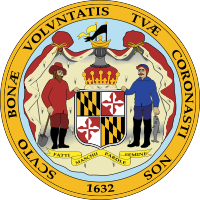On February 15, 2021, the Maryland Court of Appeals issued a decision in Clear Channel Outdoor, Inc. v. Director, Department of Finance of Baltimore City, Case No. 24-C-18-001778 (Md. 2021), upholding the constitutionality of a local ordinance that imposes an annual excise tax on businesses selling advertising space on off-site billboards. The tax in question applies only to businesses that own or control off-site billboards in the City of Baltimore i.e., billboards that are not located on the premises where the goods or services being advertised are offered for sale.

Clear Channel Outdoor, Inc. (Clear Channel) initiated a refund action in Maryland Tax Court on the grounds that the ordinance impermissibly regulated commercial speech in violation of the First Amendment and the Maryland Declaration of Rights Article 40. Clear Channel argued that the tax is subject to heightened scrutiny under the U.S. and Maryland constitutions because it implicates freedom of speech protections. Clear Channel also argued that the tax, which applies to off-site billboard operators but not on-site billboard operators, targets a narrow group of taxpayers.
The Tax Court upheld the law as constitutional because the city government had a rational basis to enact the tax as a revenue raising measure. The decision was upheld by the Maryland Circuit Court for Baltimore City, the Court of Special Appeals, and most recently the Court of Appeals (Maryland’s highest court). The Maryland Court of Appeals determined that the Tax Court’s application of rational basis review was appropriate because the ordinance does not implicate the First Amendment by either singling out the press, targeting a small group of speakers, or discriminating based on content. The Court of Appeals also observed that the measure is entitled to a strong presumption of constitutionality, a common law doctrine on which the court relied heavily. The court ultimately concluded that the ordinance satisfies rational basis review and therefore is constitutional.
The Clear Channel decision is potentially problematic for a few reasons. First, as noted by the dissent, when a law implicates a fundamental right, as the ordinance in question appears to do, it is subject to a heightened level of scrutiny and the government must show a compelling or important justification according to U.S. Supreme Court precedent. The Baltimore ordinance falls within the ambit of the First Amendment as it targets speech by taxing billboard operators that provide a platform for the dissemination of speech and content. Second, the ordinance applies only to business that operate off-site billboards, a narrow subset of speakers. Lastly, the ordinance implicitly establishes a content-based distinction by categorizing a billboard based on whether the content displayed relates to the property to which the billboard is affixed.
The Clear Channel decision comes as Maryland is receiving a great deal of attention for having recently enacted a first-of-its-kind tax on digital advertising gross revenues, which is currently being challenged in federal district court. The Maryland legislature is also considering a bill (SB 0787) that would exempt broadcast and news media entities, a small subset of advertisers, from the digital advertising tax. The Clear Channel decision and the First Amendment issues it raises could be relevant to future challenges to the digital advertising tax.
 SeeSALT Blog
SeeSALT Blog

